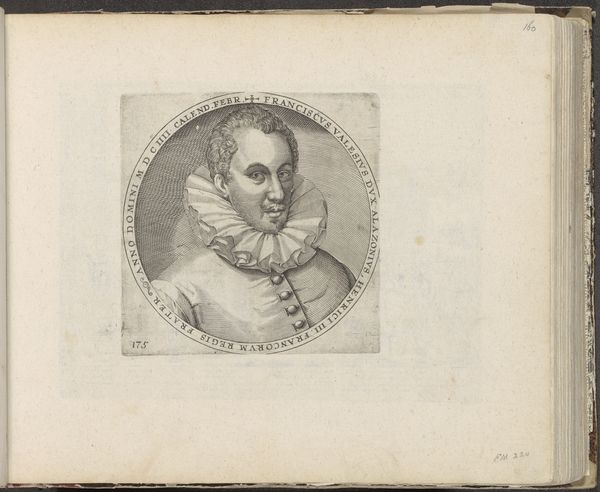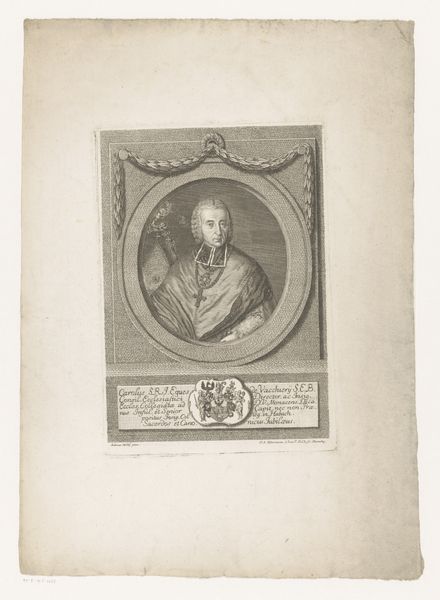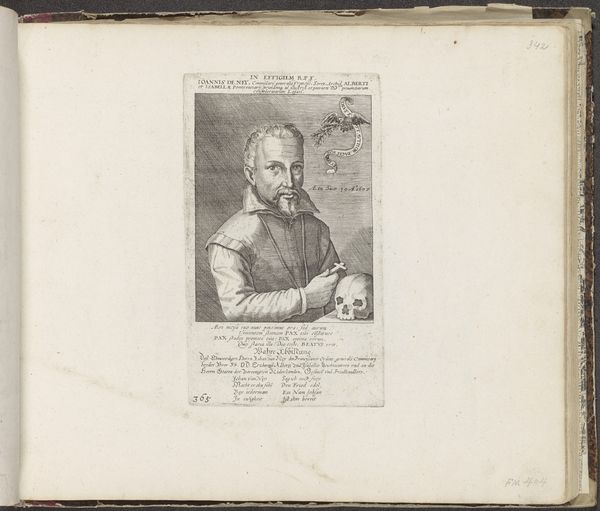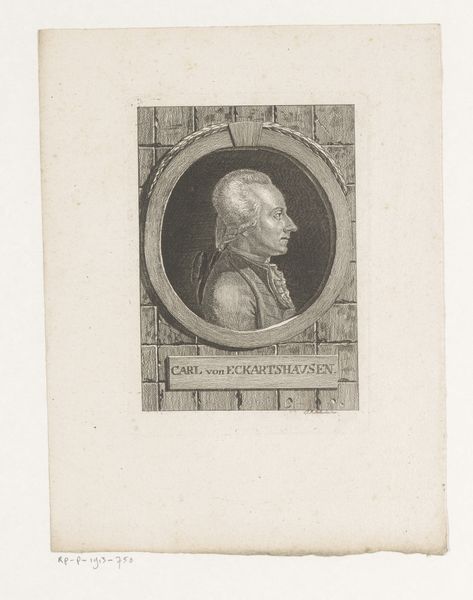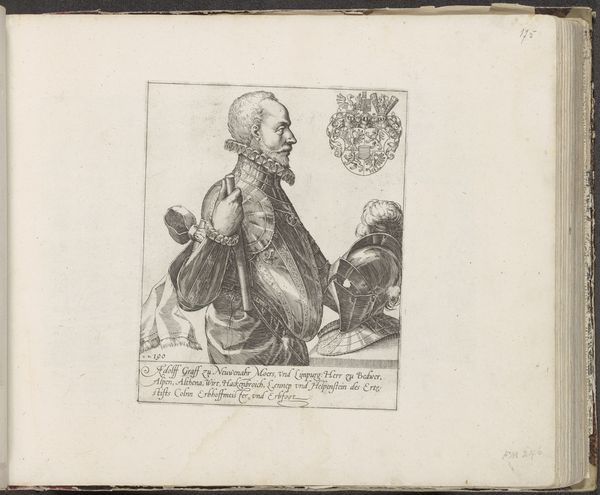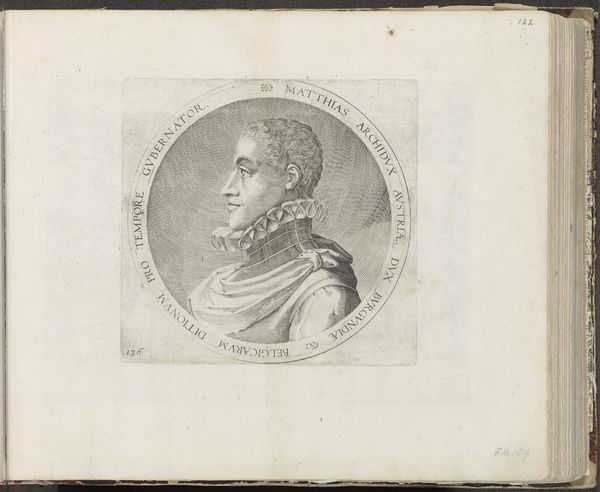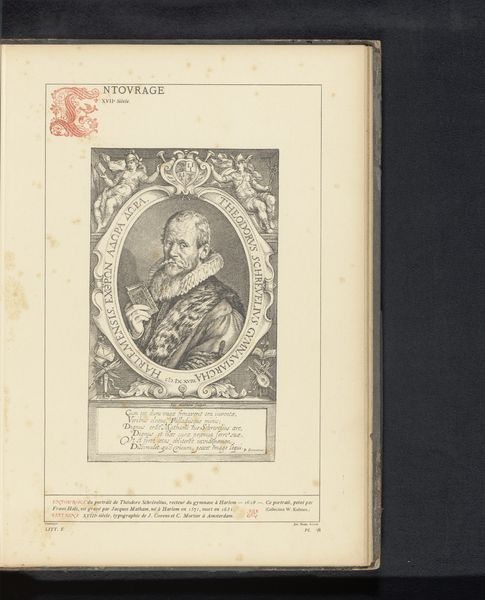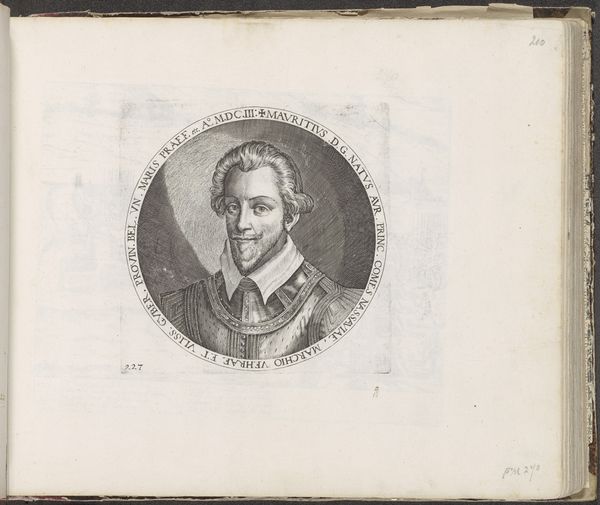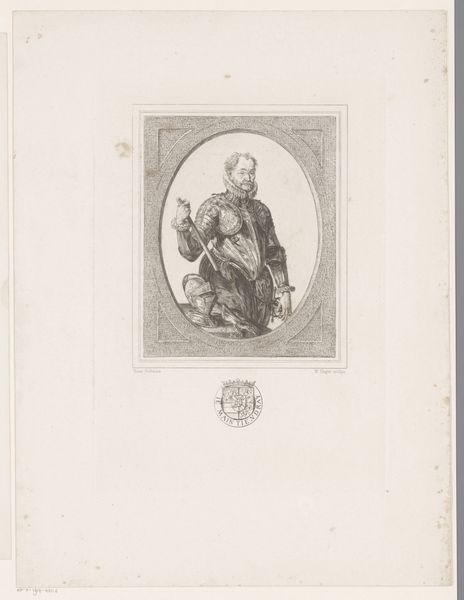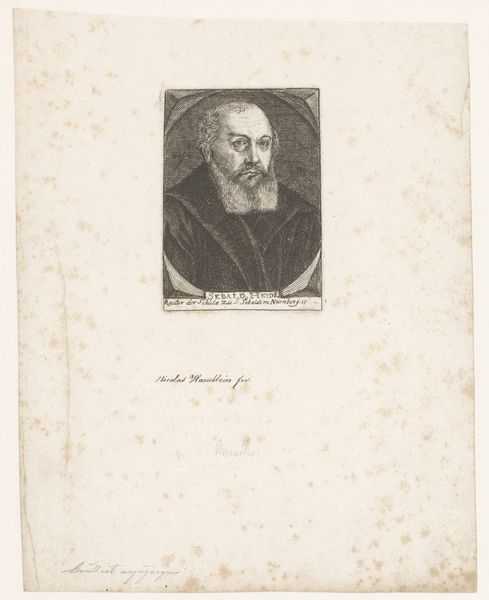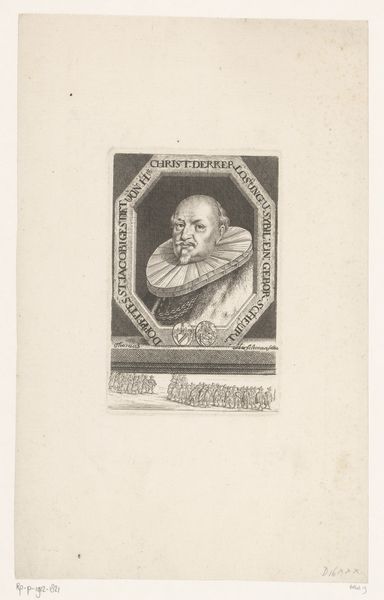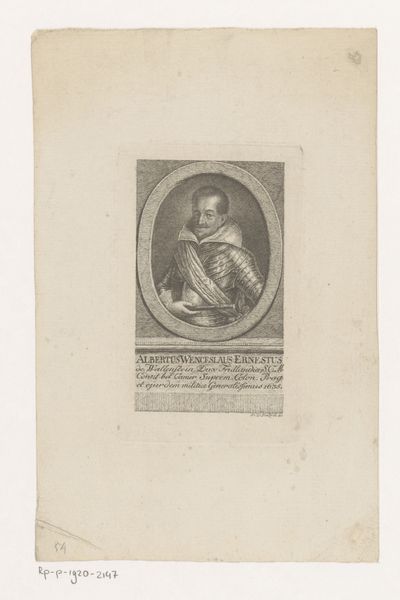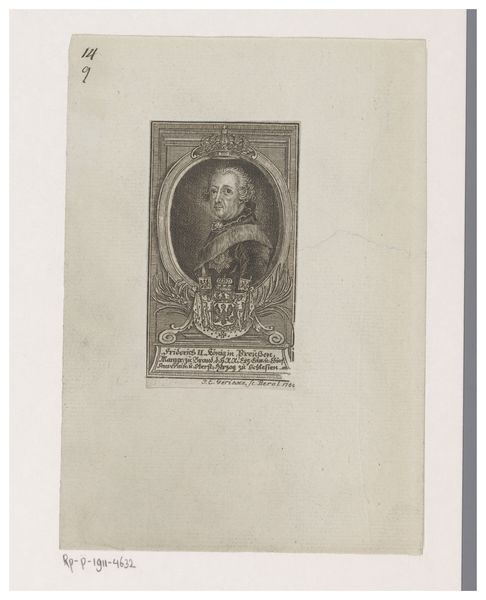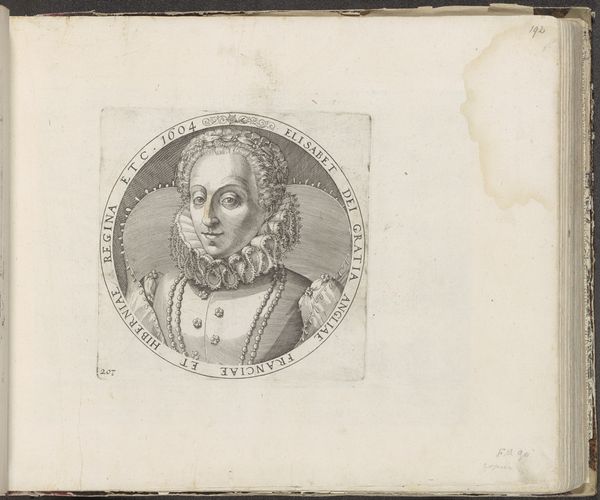
print, paper, engraving
#
portrait
# print
#
mannerism
#
paper
#
coloured pencil
#
history-painting
#
engraving
Dimensions: height 117 mm, width 116 mm
Copyright: Rijks Museum: Open Domain
Here at the Rijksmuseum is Frans Hogenberg's portrait of Gebhard Truchesess, made sometime between 1540 and 1590. It's a small yet striking engraving, dominated by the subject's composed gaze. The tight, circular composition, framed by Latin text, draws attention to the face. Hogenberg masterfully uses line to define form and texture. Notice how the fine, dense lines create depth in Truchesess's garments, contrasting with the smoother treatment of his face. This interplay of texture and line directs our focus, emphasizing the sitter's status and character. The circular format, common in portraiture of the time, suggests both containment and completeness, reflecting the subject's position within a structured social order. Ultimately, the success of this portrait lies in Hogenberg's skillful manipulation of line and form. These elements do not merely depict a person, but also communicate ideas about identity, power, and representation. By analyzing these formal qualities, we gain insight into the cultural and philosophical context of the artwork.
Comments
No comments
Be the first to comment and join the conversation on the ultimate creative platform.
